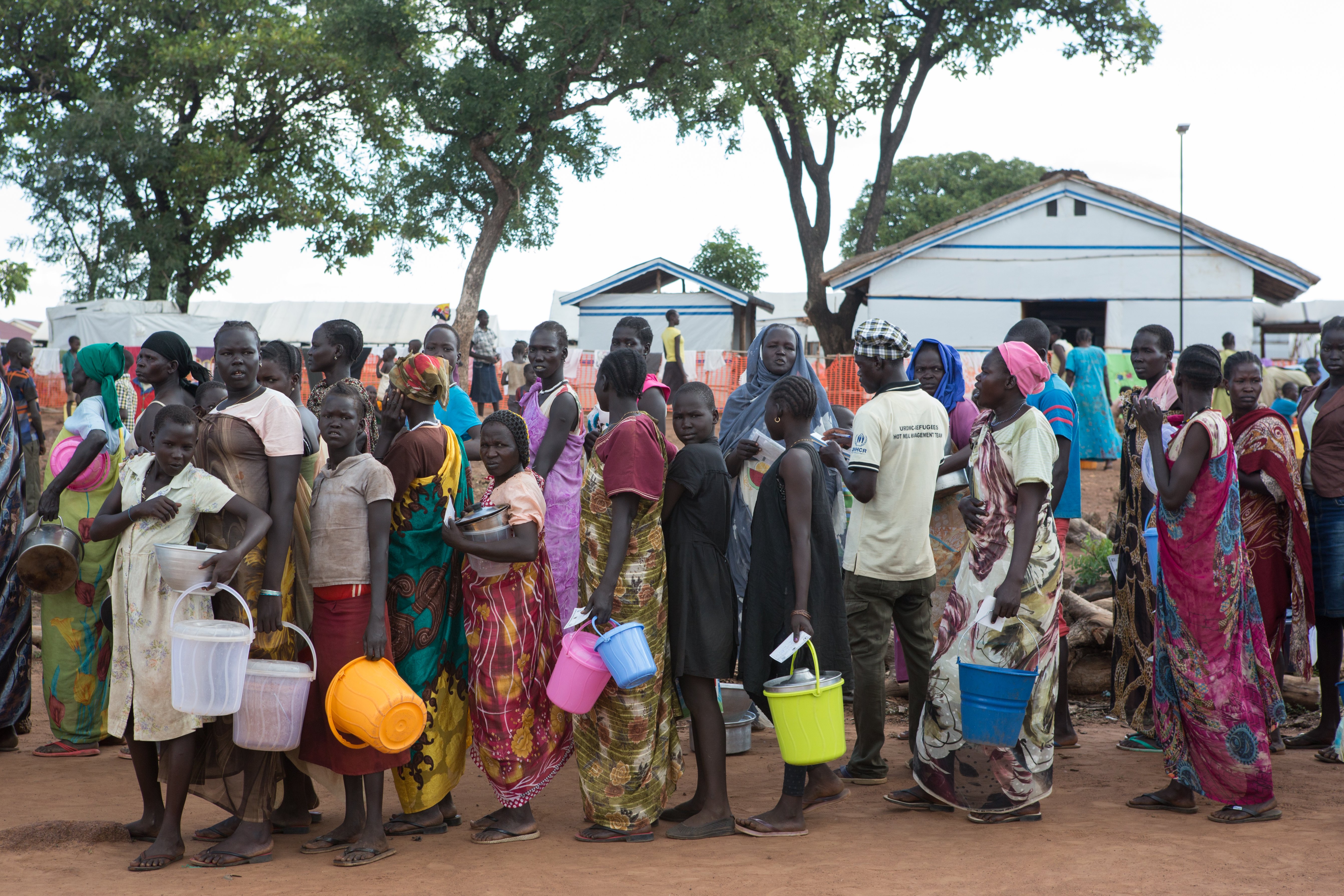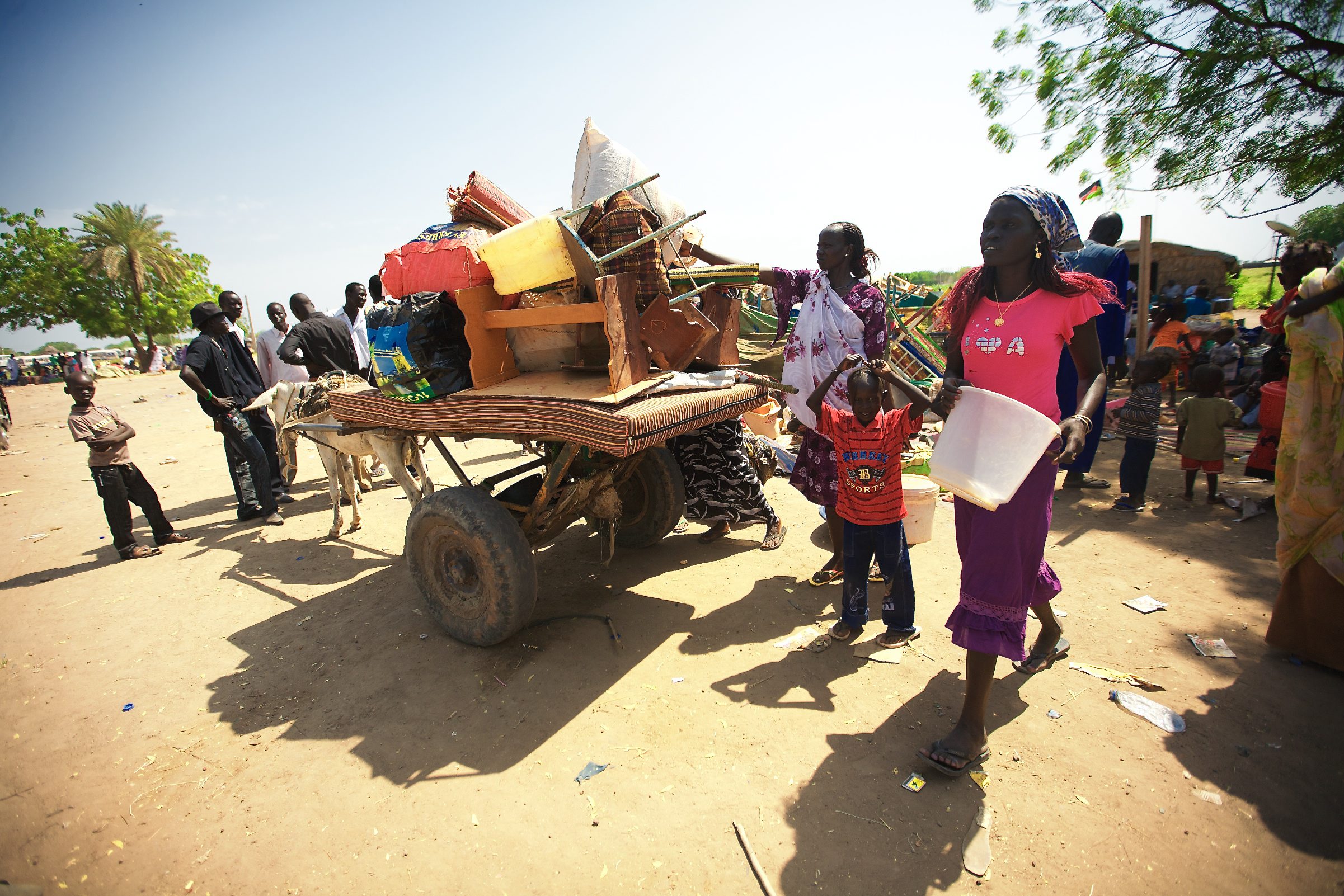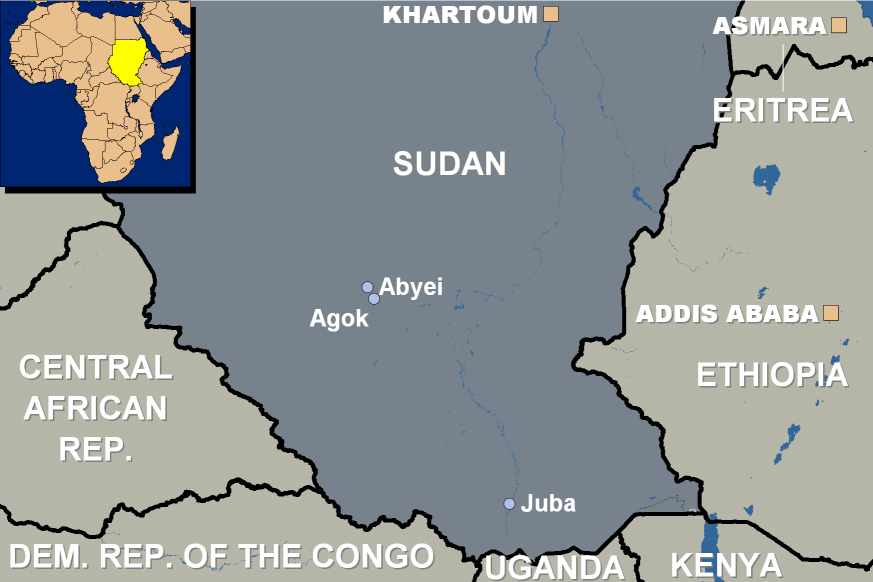Sudanese refugees eager to return home as soon as conditions permit
Sudanese refugees eager to return home as soon as conditions permit

NAIROBI/KAMPALA, Feb. 18 (UNHCR) - UN Deputy High Commissioner for Refugees Wendy Chamberlin has appealed to donors to help create conditions that will enable Sudanese refugees to return to south Sudan following the signing of a peace accord in the region a month ago.
During a weeklong visit to Sudan, Uganda and Kenya, Chamberlin heard refugees speak about their eagerness to return home and their worries that the current situation in their homeland do not permit them to repatriate anytime soon.
"A lot of work has to be done in south Sudan," Chamberlin said on Thursday at Kakuma camp following her arrival in Kenya. "We have to build roads, hospitals and create conditions that can enable refugees to go back home in comfort and safety. Kakuma, located in north-west Kenya, is home to 66,000 of the 560,000 Sudanese refugees in neighbouring asylum countries.
"Please assure us of total peace in Sudan before we go back home," said one refugee leader during a meeting with Chamberlin at Kakuma.
At Camp Rhino in northern Uganda earlier, the refugees called for a mechanism to resolve property disputes in south Sudan, fearing land they left behind is now occupied by others. "Land is freedom," one refugee said. "If we do not have land, we cannot start growing food, and if we do not have food we cannot go back."
An estimated 2 million people died during two decades of fighting and war-induced famine in south Sudan. Around 4 million people are internally displaced. The peace accord signed last month by the Khartoum government and the Sudan People's Liberation Movement (SPLM) has brought prospects of return for both refugees and the internally displaced.
Visiting south Sudan earlier in the week, the Deputy High Commissioner saw a region devastated by war, where almost all infrastructure needs to be rebuilt from scratch. Before the rehabilitation work can even start, the most pressing priority is to clear the area of thousands of landmines.
Chamberlin said UNHCR will begin work next week with the German development agency GTZ to rebuild roads between south Sudan and northern Uganda, which hosts 187,000 Sudanese refugees.
UNHCR also plans to start an information campaign for the refugees in Uganda in June, including "go-and-see" visits by refugee groups to south Sudan.
The 26,000 refugees at Rhino Camp which sprawls over 225 square kilometres know what it is like to build a home and a working community from scratch. Rhino Camp, like other refugee settlements in Uganda, is part of a national "Self-Reliance Strategy" programme, under which the government gives large plots of land for the refugees. The refugees themselves then build houses and schools, with material and technical guidance provided by UNHCR and its partners. UNHCR also constructs roads, clinics and other infrastructures, which benefit both the refugees and their host communities.






